Keywords: Anthony Albanese
-
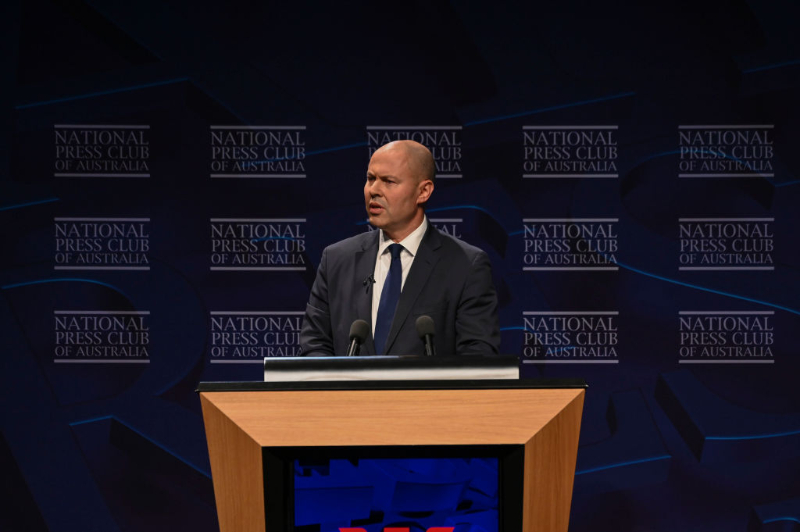
ECONOMICS
- Julian Butler
- 31 March 2022
1 Comment
In 2020 as the Covid-19 pandemic raged globally, as Australia shut its borders and some states shut in their people, massive government income support was introduced. The government was a little slow coming to recognise the need for such measures. Once they had, they wanted the support rolled out as quickly as possible. Frydenberg, Scott Morrison and their colleagues recognised that a demand side boost was absolutely necessary to sustain economic activity. The government was uncomfortable, though, with this approach.
READ MORE 
-
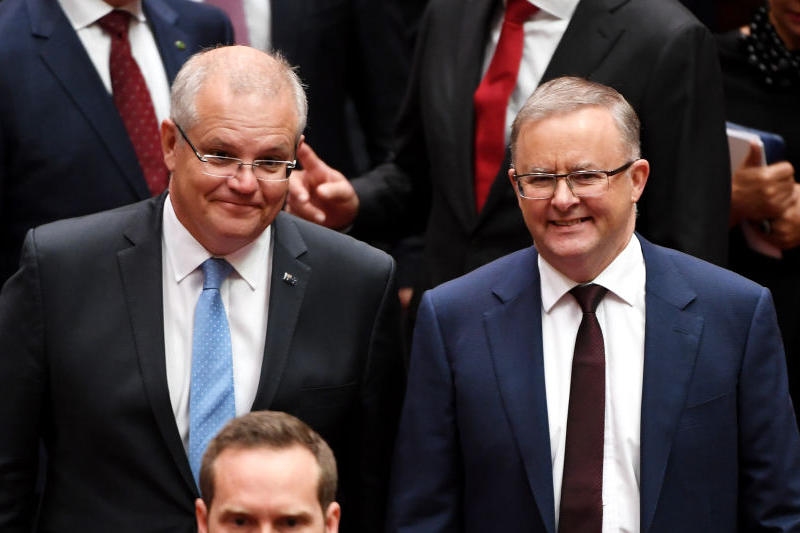
AUSTRALIA
- Andrew Hamilton
- 30 March 2022
6 Comments
By attending to the faces of people who are seen as props to the election campaign, and developing an interest in the background of social change in different parts of Australia, we gain a deeper understanding of Australia and its needs. At one level election campaigns are all showbiz and make believe, but at another the humanity that they can never quite stifle also punctures the images that the contesting partners project of Australia.
READ MORE 
-
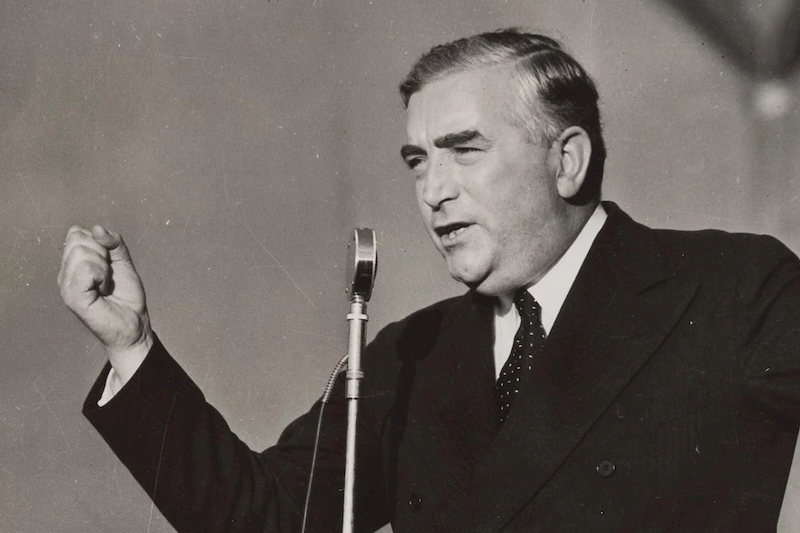
AUSTRALIA
- John Warhurst
- 09 March 2022
13 Comments
Domestic policies are often regarded as more important than foreign affairs and defence policies in influencing Australian election campaigns. But national security campaigns by the government of the day, known as either khaki elections or reds under the beds, have such a long history in Australian federal elections that they challenge the conventional wisdom.
READ MORE 
-
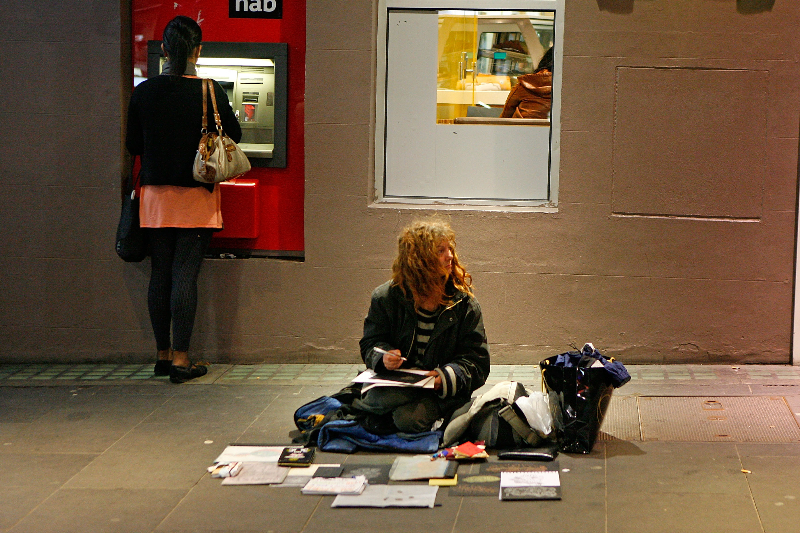
ECONOMICS
- John Falzon
- 04 January 2022
7 Comments
When you put rising housing costs alongside stagnating wages, an alarming trend in normalising insecure work, persistent unemployment and underemployment, and statutory incomes that are going backwards in real terms, there’s good reason to be deeply worried about an increase in homelessness.
READ MORE
-
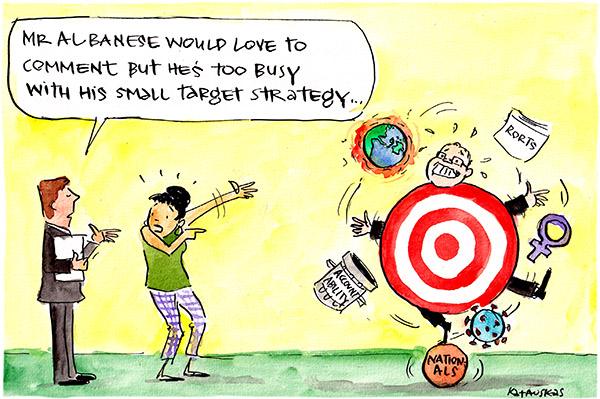
CARTOON
- Fiona Katauskas
- 19 October 2021
2 Comments
READ MORE 
-
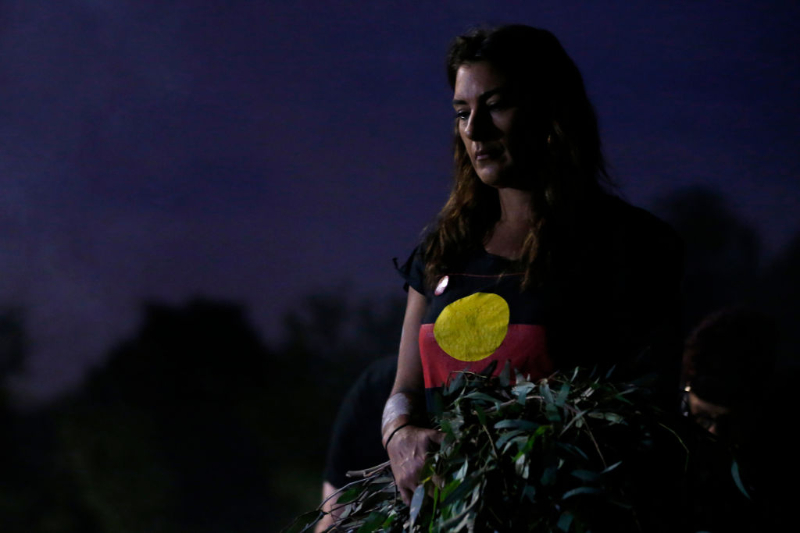
AUSTRALIA
- Zachary Wone
- 16 September 2021
16 Comments
The movement for genuine and long overdue truth telling about Australian history has gained considerable momentum in recent years. The Frontier Wars in particular has emerged as one of, if not the most significant untold stories which it is now broadly agreed must be included in any such process.
READ MORE 
-
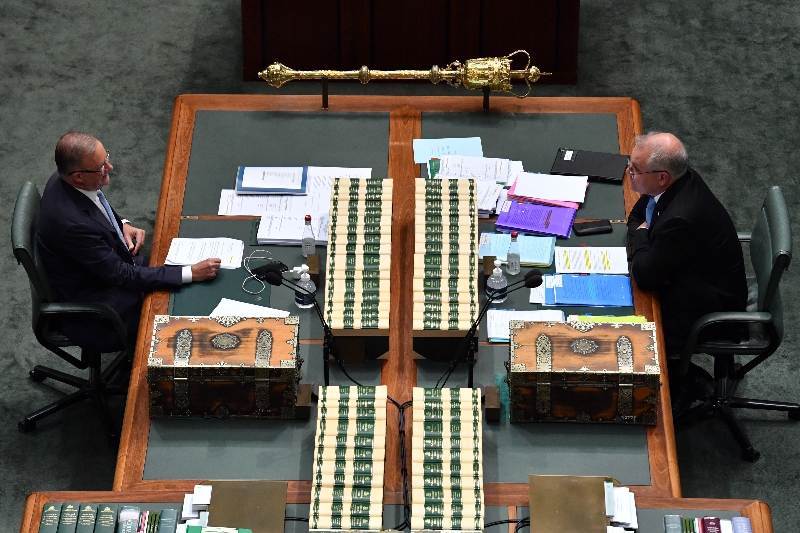
ECONOMICS
- Chris Smith
- 31 August 2021
11 Comments
In July, Anthony Albanese announced a significant change of stance on Labor tax policy which was disappointing, if not surprising. An elected Labor government, Albanese promised, would keep the coming high income tax cuts he previously opposed. This decision to not oppose the government proposal to restructure the income tax system through reduced marginal rates is supporting a government policy that will lead to a significant redistribution of wealth towards high income earners.
READ MORE 
-

ECONOMICS
- John Falzon
- 10 August 2021
13 Comments
When you put rising housing costs alongside stagnating wages, an alarming trend in normalising insecure work, persistent unemployment and underemployment, and statutory incomes that are going backwards in real terms, there’s good reason to be deeply worried about an increase in homelessness.
READ MORE 
-

FAITH DOING JUSTICE
- Anthony Albanese
- 23 February 2021
17 Comments
What we have is a rare opportunity — in all likelihood a once-in-a-lifetime chance — to shape the future and emerge from the pandemic as a better, fairer nation.
READ MORE 
-
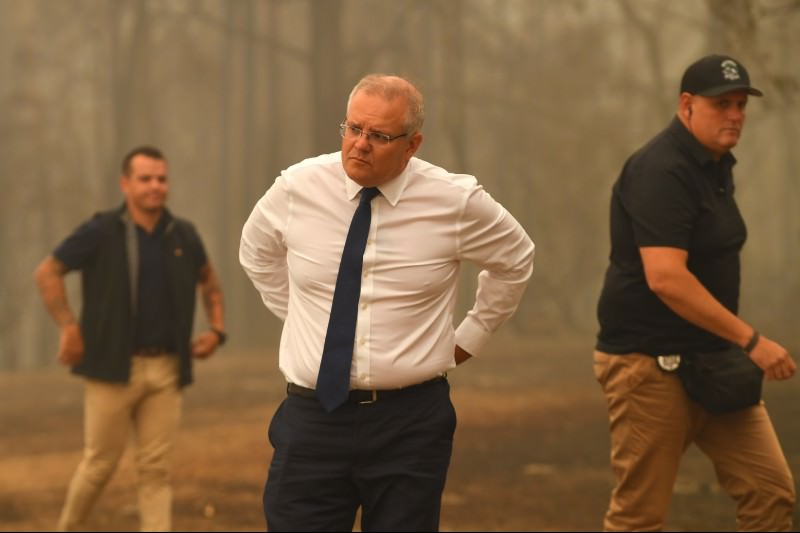
ENVIRONMENT
- Tim Hutton
- 07 January 2020
43 Comments
Here is why the Morrison government was so slow off the mark: to acknowledge the unprecedented nature of these fires is to concede that there is something happening to the climate. The only way to downplay the reality of climate change, was to downplay the severity of the fires themselves.
READ MORE 
-

AUSTRALIA
- John Warhurst
- 11 November 2019
10 Comments
The Labor Party's dismal performance this year has been bookended by May's election loss and this month's campaign review report. As it reflects publicly on the devastating election loss, discussion has also begun among Labor supporters about whether it has chosen the right leader for the future in Albanese.
READ MORE 
-
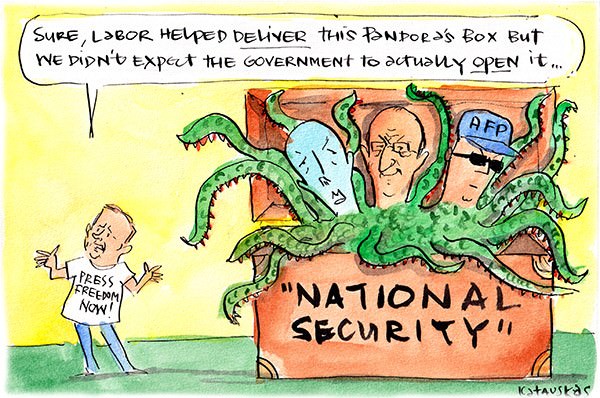
CARTOON
- Fiona Katauskas
- 22 October 2019
READ MORE 